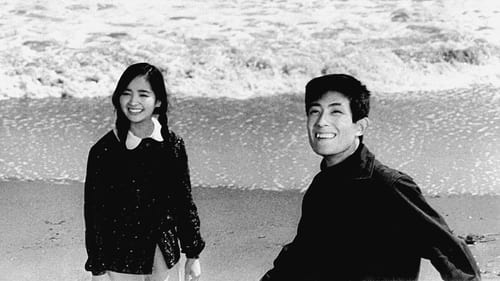Setsu Asakura
Birth : 1922-07-16, Yanaka, Tokyo, Japan
Death : 2014-03-27

Self
ANPO: Art X War tells the story of Japan's historic resistance to U.S. military bases in Japan through an electrifying array of artwork created by Japan's foremost artists. The film articulates the insidious, lasting impact that the U.S. military presence has had on Japanese lives, and the creative processes that artists have devised to transmit the spirit of resistance.

Costume Design
As the great military commander Nobunaga Oda was consolidating his power across Japan, one of his actions was to wipe out a clan of assassins, killing every man, woman and child he found in the village. Years later, one of the survivors has hired a young but skilled assassin to avenge the deaths of his friends and family. His mission: to sneak into the most heavily guarded castle in Japan, and kill the supreme ruler of the country.

Costume Designer
A crippled kabuki player is taken into a strolling company of itinerant actors. An influential publisher notices his honest, bold drawings, and nurtures him despite persecution and betrayal. The film explores the eternal relationship between artist and producer, and describes the emanicipation of a man who refuses to let himself become the plaything of power and money.

Set Designer
A production of Die Frau ohne Schatten filmed in Japan.

Production Design
The care facilities for the elderly in a small town in Gifu prefecture, and the comparison with the welfare in Denmark, Sweden and Australia.

Art Direction
Based on a semi-autobiographical story by Ogai Mori, about a Japanese medical student who goes to Berlin to study in the 1880s and falls in love with a German ballet dancer.

Production Design
Based on the folk tales "Repayment from a crane". One snowy night a beautiful woman named Tsuru (Crane) visits poor peasant Taiju and says she will become his wife...

Costume Design
Musical film: Hiromi Go plays a warrior, a gigolo, and an officer spread across a thousand years of history

Production Design
Musical film: Hiromi Go plays a warrior, a gigolo, and an officer spread across a thousand years of history

Costume Design
The Moon Mask Rider is a tokusatsu movie produced by Purumie International/Herald Enterprises and distributed by Nippon Herald Pictures, was released theatrically on March 14, 1981. Considered Japan's answer to the American box-office fiasco, The Legend of the Lone Ranger (released the same year), this updated version of the Moonlight Mask legend bombed at the Japanese box-office. Daisuke Kuwahara (who, like Klinton Spilsbury , disappeared from doing films) plays George Owara (Moon Mask Rider's new alter-ego), and the rest of the cast made up of veteran action starlets: Sue Shihomi, Daijiro Harada and Takayuki Godai.

Production Design
Adaptation of a 1956 novel by Yukio Mishima.

Art Direction
Outside of a small village in Japan, a mysterious pond is inhabited by mythic creatures. Their story is of revenge, tragedy, and the power of real love. A classical tale which translates wonderfully to film.

Art Direction
A mountain man beheads his many wives to prove his love to an alluring woman he meets in an enchanted forest.

Art Direction
In this intricately layered Japanese film, the nature of actresses and what they gain from acting is explored. The lives of three actresses are laid bare, and scenes from their lives are woven in and out of interviews with each of them. Each of them has experienced a traumatic event which contributes to their particular enjoyment of becoming someone else in dramatic roles.

Art Direction
Gengobe Satsuma, an exiled samurai cast out as an Asano clan retainer is given a second chance to join his brothers in arms to become the 48th Ronin against the Shogunate. His faithful servant gathers the 100 ryo required for his acceptance. Gengobe is also in love with a greedy geisha named Koman. About to be sold to another man, Gengobe learns that for him to keep her, her debt is exactly 100 ryo.

Art Direction
An electrifying journey into the nether regions of the late-‘60s Tokyo underground. A loose adaptation of Oedipus Rex in which a gay son kills his mother and sleeps with his father.

Art Direction
Based on the hit song, the story involves a young boy and girl who leave their home in Hokkaido to come and live in Tokyo.













